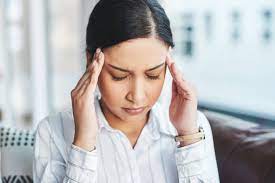
Introduction
Lower back pain can be debilitating, affecting daily activities and overall well-being. Consulting a lower back pain specialist is essential for accurate diagnosis and effective treatment. These specialists are trained to address various causes of lower back pain and provide tailored solutions for relief.
Understanding Lower Back Pain
Lower back pain can arise from multiple factors, including muscle strain, poor posture, injuries, or underlying conditions like herniated discs or spinal stenosis. It can range from mild discomfort to severe pain, limiting mobility and impacting quality of life.
The Role of a Lower Back Pain Specialist
A lower back pain specialist plays a crucial role in diagnosing and managing lower back pain. These experts have extensive knowledge and experience in evaluating the underlying cause of the pain and recommending appropriate treatment options.
Diagnostic Techniques Used by Specialists
Lower back pain specialists utilize various diagnostic tools, such as physical examination, medical history review, and imaging studies like X-rays or MRI scans. These techniques help identify the specific source of the pain, guiding the treatment approach.
Treatment Options Available
Once the cause of the lower back pain is determined, the specialist will recommend suitable treatment options. These may include medication for pain relief, physical therapy to improve strength and flexibility, or interventional procedures like injections or surgery in severe cases.
Collaborative Approach to Care
Lower back pain specialists often collaborate with other healthcare professionals, such as physical therapists, chiropractors, or pain management specialists, to provide comprehensive care. This multidisciplinary approach ensures that all aspects of the patient’s condition are addressed, leading to better outcomes and improved quality of life.
Lifestyle Modifications for Lower Back Pain Management
In addition to medical interventions, lifestyle modifications can play a crucial role in managing lower back pain. Simple changes in daily habits can make a significant difference. Patients may benefit from maintaining a healthy weight, practicing good posture, avoiding prolonged sitting or standing, and incorporating regular exercise into their routine. Low-impact activities like walking, swimming, or yoga can help strengthen the muscles supporting the lower back and improve flexibility. Additionally, quitting smoking and reducing alcohol consumption can promote better overall health and alleviate lower back pain. By adopting these lifestyle modifications, individuals can reduce the frequency and severity of lower back pain episodes and improve their overall well-being.
Addressing Psychological Factors
It’s essential to recognize the role of psychological factors in lower back pain management. Chronic lower back pain can lead to feelings of frustration, anxiety, depression, and decreased quality of life. Lower back pain specialists are trained to address these psychological aspects of pain and provide appropriate support and resources. This may involve counseling, cognitive-behavioral therapy, relaxation techniques, or referral to mental health professionals. By addressing both the physical and emotional aspects of lower back pain, specialists can help patients develop coping strategies, improve mood, and enhance overall well-being.
Conclusion: Embracing a Pain-Free Future
Lower back pain can be a challenging condition to manage, but with the expertise of a lower back pain specialist and a comprehensive treatment plan, relief is possible. By understanding the causes, symptoms, and treatment options for lower back pain, individuals can take proactive steps towards managing their condition and improving their quality of life. Don’t let lower back pain hold you back from enjoying life to the fullest. Consult a lower back pain specialist today and embark on the journey towards a pain-free future.








